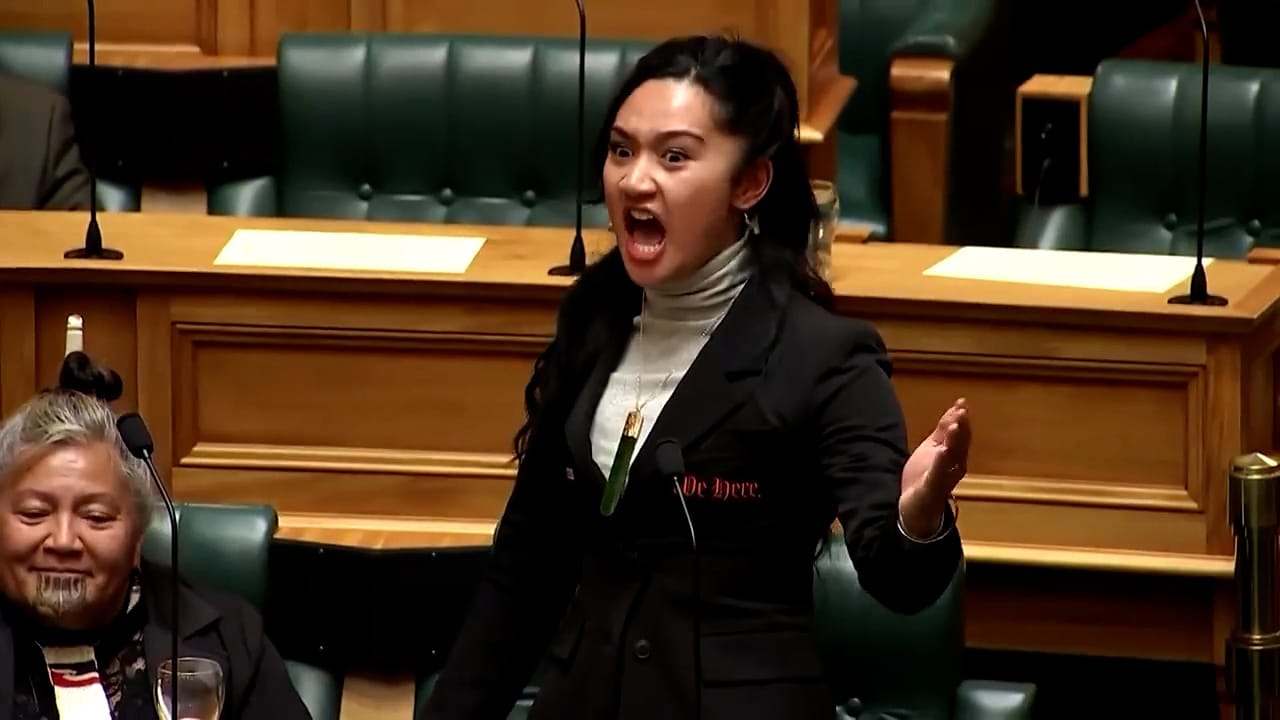Three Maori MPs Face Suspension Following Controversial ‘Intimidating’ Haka Performance

New Zealand’s parliament has made headlines by voting to suspend three Māori MPs following their protest haka during a parliamentary session last year. Opposition MP Hana-Rawhiti Maipi-Clarke received a seven-day ban after initiating the traditional dance in response to a controversial bill. Meanwhile, the co-leaders of the Māori Party, Rawiri Waititi and Debbie Ngarewa-Packer, have been handed a more severe 21-day suspension. This incident has reignited discussions about the relationship between the government and the Māori community, especially in light of the bill that aimed to redefine the country’s founding treaty, which has since been rejected.
Details of the Suspensions
The suspensions of the three Māori MPs are unprecedented in New Zealand’s parliamentary history. Before this incident, the longest ban for any lawmaker was just three days. The parliamentary committee’s decision to impose these penalties came after the MPs performed the haka, a traditional Māori dance that symbolizes defiance and unity. This performance occurred last November when Maipi-Clarke was asked if her party supported the controversial Treaty Principles Bill. The committee ruled that the haka could have “intimidated” other lawmakers, leading to the disciplinary actions. Maipi-Clarke expressed her emotional response during the debate on the penalties, questioning whether their voices were deemed too loud for the parliamentary environment.
The Controversial Treaty Principles Bill
The Treaty Principles Bill, which sparked the protest, aimed to redefine the Treaty of Waitangi, New Zealand’s founding document signed in 1840 between the British Crown and Māori leaders. The bill was ultimately voted down by a significant margin of 112 to 11 votes in April, shortly after a government committee recommended against its progression. The right-wing party, Act, which introduced the bill, argued that it was necessary to legally define the principles of the Treaty. They claimed that the current interpretation was causing division along racial lines. However, critics contended that the bill itself would have exacerbated divisions and undermined support for the Māori community.
Public Reaction and Broader Implications
The proposed legislation ignited widespread outrage across New Zealand, culminating in a significant protest outside parliament where over 40,000 people demonstrated against the bill during its first reading last November. This public outcry reflects the growing tensions between the Māori community and the current conservative government, which has faced criticism for its handling of indigenous rights. The Māori Party, which holds six of the 123 seats in parliament, has been vocal in its opposition to the government’s policies, and the recent suspensions have further fueled the debate about the treatment of Māori representatives in the political arena.
Political Climate and Future Considerations
The political climate in New Zealand has become increasingly contentious, particularly regarding issues of race and indigenous rights. The government’s relationship with the Māori community has been strained, with many feeling that their voices are being marginalized. During the parliamentary debate, Foreign Minister Winston Peters referred to the Māori Party as a “bunch of extremists,” prompting calls for an apology. As the country navigates these complex issues, the recent suspensions of the Māori MPs serve as a stark reminder of the ongoing struggles for representation and recognition within New Zealand’s political framework.
Observer Voice is the one stop site for National, International news, Sports, Editor’s Choice, Art/culture contents, Quotes and much more. We also cover historical contents. Historical contents includes World History, Indian History, and what happened today. The website also covers Entertainment across the India and World.
Follow Us on Twitter, Instagram, Facebook, & LinkedIn

